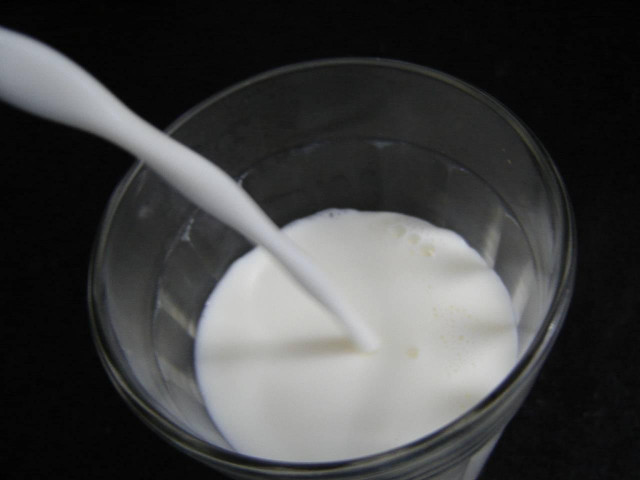Want pure milk? Pass better laws
Comprehensive legal framework to counter milk adulteration urged.

Milk adulteration prevention policies and legislation framework is a must if we want to have pure milk for use. This was the consensus among participants in a consultation workshop on “Milk anti-adulteration policy” organised by Plan International here on Thursday.
Pakistan is the third largest milk-producing country in the world, but the sector is yet to achieve its maximum potential. Only 3-4 per cent of the total milk produced is processed through formal dairy industry and marketed through formal channels, whereas the remaining milk reaches end users for immediate consumption through traditional distribution system of milkmen.
(Read: Punjab Milk Boards Ordinance ineffective for past 30 years)
Dr Naseem Akhtar of United Nations International Development Organization said that contractors are a major source of milk collection and supply; he said they use “very sophisticated” adulterants to satisfy tests conducted by processors. This widespread milk adulteration has its own social, economical and health implications, all of which need to be identified and addressed.
Plan Pakistan Country Director Haider W Yaqub said that presently Pure Food Rules of 1965, Cantonment Pure Food Rules of 1967 (for military areas), and parts of the Pakistan Penal Code of 1860 are applicable to the dairy industry along with the other food items. Punjab government has taken the lead and introduced the Pure Food Laws 2007 and Food Safety Standards Act 2011, he added. These legislative and regulatory measures affect dairy industry, milk marketing and adulteration in Pakistan.
Raja Rafqat Hussain of National Rural Support Programme said that they are implementing barriers to curb milk adulteration in fresh milk. The current process of collecting milk from a large number of subsistence farmers is time-consuming, costly and creates many opportunities for adulteration.
Dr Amanullah Cheema of National Agricultural Research Centre, while speaking on the occasion, said that government is obliged to implement the existing food safety standards effectively. Practical training to farmers on modern farming and animal husbandry practices need to be provided. The capacity of training institutions should be raised and serious efforts are needed to develop the dairy sector and provision of the best quality milk to the consumers.
Moiz Ali of Plan Pakistan said that the country’s dairy industry, in general, is constrained by a number of major issues such as low productivity, seasonality in milk supply, a patchy distribution system, the absence of cold chains and unhygienic handling, which leads to poor milk quality and the inability to meet international standards. These need to be addressed on an urgent basis. Corruption, inefficiency, and lack of political will to implement the legislation complicate the issue.
‘Punishment for adulterators inadequate’
Rawalpindi District Food Inspector Rana Murtaza told The Express Tribune that adulterators take advantage of the existing weak law against the practice. Currently, violators are fined a meagre amount, he said.
He admitted that there is high degree of adulteration and the food department last year seized 10 trucks carrying adulterated milk worth Rs10 million. However, he expressed dismay over the laboratory system, saying that there is no satisfactory system to test the milk for its quality - the available tests can only show how much water is mixed with the milk.
The food inspector said, “The adulterators extensively mix surf, flour, CMC- powder, chemicals and other liquids to preserve and thicken the milk, which is extremely hazardous to health.” He added that the green rubber drums often used for milk storage also have serious health implications. He added they have no proper way to check the hygiene level of the milk they are testing.
Published in The Express Tribune, October 14th, 2011.



















COMMENTS
Comments are moderated and generally will be posted if they are on-topic and not abusive.
For more information, please see our Comments FAQ